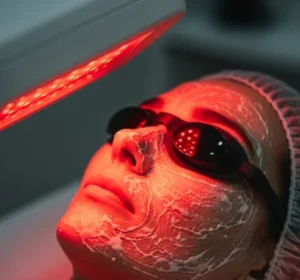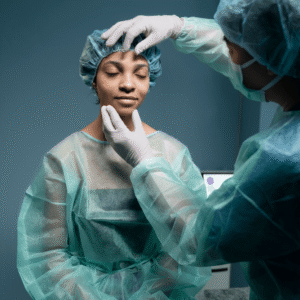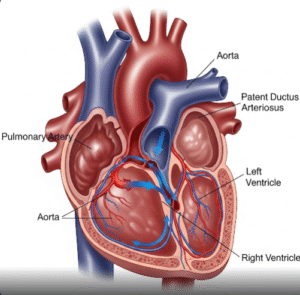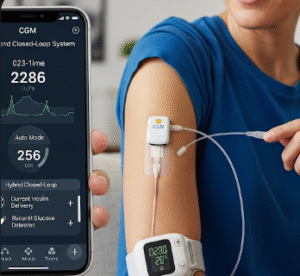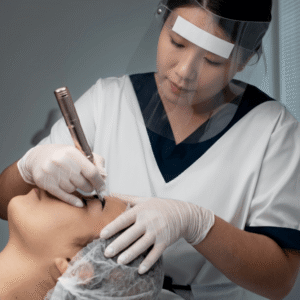What is a Genetic Test for Cancer Risk?
A genetic test for cancer risk is a medical evaluation that analyzes specific genes or mutations to determine an individual’s susceptibility to developing certain types of cancer. These tests can reveal hereditary mutations that increase lifetime cancer risk, allowing for early detection, preventive measures, and personalized treatment planning.
💡 Key Points About Cancer Risk Genetic Testing:
✔️ Detects inherited mutations – Such as BRCA1, BRCA2, TP53, MLH1, MSH2
✔️ Assesses lifetime risk – Helps predict likelihood of breast, ovarian, colorectal, or other cancers
✔️ Enables preventive strategies – Lifestyle changes, screening, or prophylactic surgery
✔️ Supports personalized medicine – Guides targeted therapies and surveillance
Types of Cancer Genetic Tests:
➡️ Single-gene tests – Focused on one mutation linked to a specific cancer
➡️ Multi-gene panels – Evaluate multiple genes associated with various cancers
➡️ Whole exome sequencing – Examines all protein-coding genes for mutations
➡️ Predictive testing – Determines cancer risk in asymptomatic individuals with family history
➡️ Pharmacogenomic testing – Helps choose treatments if cancer develops
In Korea, these tests are performed in specialized hospitals, oncology centers, and genetic clinics, often combined with professional genetic counseling.
Why It’s Done
Cancer risk genetic testing is recommended for early detection, prevention, and family planning:
✔️ Family history of cancer – Early onset, multiple relatives, or rare cancers
✔️ Personal history of cancer – To assess risk of additional cancers
✔️ Preventive decision-making – Evaluate need for enhanced surveillance or prophylactic procedures
✔️ Pharmacogenomics – Guide therapy if cancer develops
✔️ Population risk screening – For high-risk ethnic or age groups
Clinical Benefits:
➡️ Early intervention → Screening or prophylactic surgery reduces cancer risk
➡️ Personalized prevention → Tailored lifestyle, diet, and medical management
➡️ Family planning → Carrier detection informs reproductive choices
➡️ Peace of mind → Accurate risk assessment for informed decisions
In Korea, genetic testing is widely recommended for high-risk families, oncology patients, and individuals seeking preventive healthcare.
Alternatives
Other methods may provide partial risk assessment, but do not replace genetic testing:
⭐ Regular cancer screening – Mammograms, colonoscopy, Pap smears
⭐ Lifestyle risk assessment – Diet, smoking, alcohol, and exercise evaluation
⭐ Biochemical markers – Blood tests for cancer indicators (limited predictive value)
⭐ Family history analysis – Clinical risk assessment without genetic confirmation
👉 Key Point: Only genetic testing identifies specific mutations that confer significant hereditary cancer risk.
Preparation
Proper preparation ensures accurate results and meaningful counseling:
🔹 Medical and family history review – Document cancers in relatives, age of onset, and prior test results
🔹 Informed consent – Understanding implications, limitations, and privacy considerations
🔹 Sample collection – Blood, saliva, or cheek swab, depending on the test
🔹 Pre-test genetic counseling – Assess risk, explain potential outcomes, and emotional support
⭐ Medication and diet – Usually no restrictions, but check lab instructions
⭐ Arrange emotional support – Results may impact lifestyle or family planning decisions
How It’s Done
Genetic testing for cancer risk involves collection, laboratory analysis, and interpretation:
- Sample Collection
✔️ Blood sample (most common)
✔️ Saliva or buccal swab for less invasive collection - Laboratory Analysis
🔹 DNA extraction and quality assessment
🔹 Sequencing or targeted gene panel analysis
🔹 Bioinformatics interpretation to identify pathogenic mutations - Result Interpretation
➡️ Genetic counselor reviews findings with the patient
➡️ Risk levels explained (high, moderate, or low)
➡️ Recommendations for screening, preventive strategies, or family testing
Highlights:
✔️ Non-invasive, outpatient procedure
✔️ Results turnaround: 2–6 weeks for panel testing, longer for whole genome sequencing
✔️ Testing accuracy is high in Korean hospitals due to advanced laboratory technology
Recovery / Follow-up
Genetic testing has no physical recovery, but follow-up is critical:
✔️ Post-test counseling – Discuss implications, preventive options, and risk management
✔️ Screening schedules – Increased surveillance if high-risk mutation detected
✔️ Family testing – Identify at-risk relatives
✔️ Medical planning – Adjust lifestyle, preventive surgery, or chemoprevention strategies
⭐ Psychological support may be provided for anxiety or stress related to results
Complications / Risks
Physical risks are minimal, but there are psychological, ethical, and social considerations:
⚠️ Emotional impact – Anxiety, fear, or guilt over high-risk findings
⚠️ Privacy concerns – Genetic data is sensitive and must be securely stored
⚠️ Insurance or employment discrimination – Rare, but patient awareness is key
⚠️ Incidental findings – Mutations unrelated to initial testing may be discovered
➡️ Korea ensures strict confidentiality, ethical counseling, and professional guidance, reducing risk of misuse or misinterpretation.
Treatment Options / Genetic Testing Services in Korea
Korean hospitals provide comprehensive genetic testing services for cancer risk:
🏥 Single-gene testing – BRCA1/2, TP53, APC, MLH1, MSH2
🏥 Multi-gene panels – Evaluate hereditary breast, ovarian, colorectal, and other cancers
🏥 Whole exome/genome sequencing – For complex or rare hereditary cancers
🏥 Prenatal testing – For families with known hereditary cancer mutations
🏥 Genetic counseling – Pre- and post-test guidance for informed decisions
🏥 Follow-up care – Personalized surveillance, preventive strategies, and family risk assessment
Why Korea is a Preferred Destination:
✔️ State-of-the-art genomic laboratories – High accuracy and rapid processing
✔️ Expert genetic counselors – Interpreting results, planning prevention and treatment
✔️ Integration with cancer care – Oncologists coordinate risk-based screening and management
✔️ Ethical and legal safeguards – Patient confidentiality and informed consent
✔️ Advanced technology – High-throughput sequencing, bioinformatics analysis, and data integration
Approximate Costs in Korea:
🔹 Single-gene testing → $200 – $600
🔹 Multi-gene panel testing → $500 – $1,800
🔹 Whole exome sequencing → $1,500 – $3,500
🔹 Whole genome sequencing → $3,000 – $6,500
🔹 Genetic counseling session → $50 – $150
Conclusion
Genetic tests to check your cancer risk are essential tools for personalized medicine, early detection, and preventive care, allowing individuals to make informed decisions about their health and lifestyle.
They help patients:
✔️ Identify hereditary mutations that increase cancer risk
✔️ Plan personalized screening and prevention strategies
✔️ Make informed reproductive and lifestyle decisions
✔️ Reduce anxiety through proactive health management
In Korea, these tests provide:
✔️ Advanced laboratory technology – Accurate, fast, and reliable results
✔️ Expert counseling and clinical integration – Personalized guidance for preventive care
✔️ Comprehensive care – Linking testing, surveillance, and treatment planning
✔️ Ethical and safe practice – Protecting privacy and minimizing psychological impact
👉 Key Message: Genetic testing for cancer risk in Korea offers early detection, precise risk assessment, and actionable guidance, helping patients and families prevent cancer and manage health proactively.


